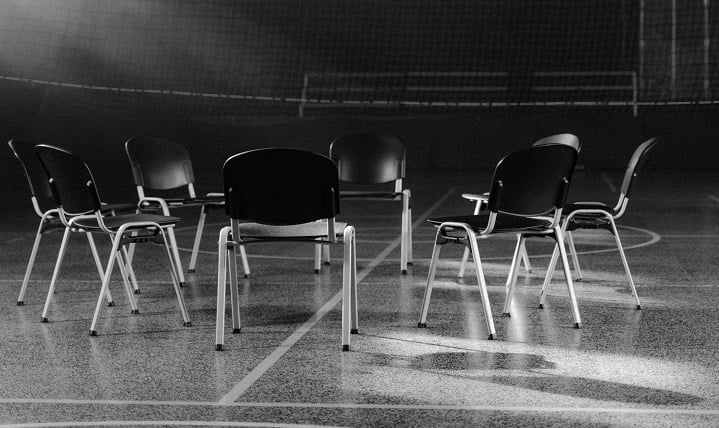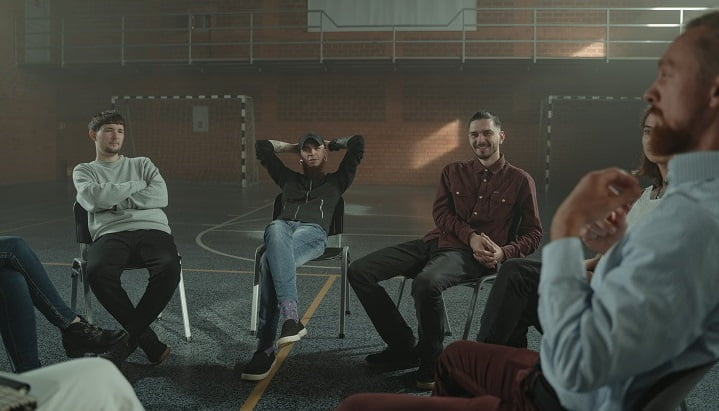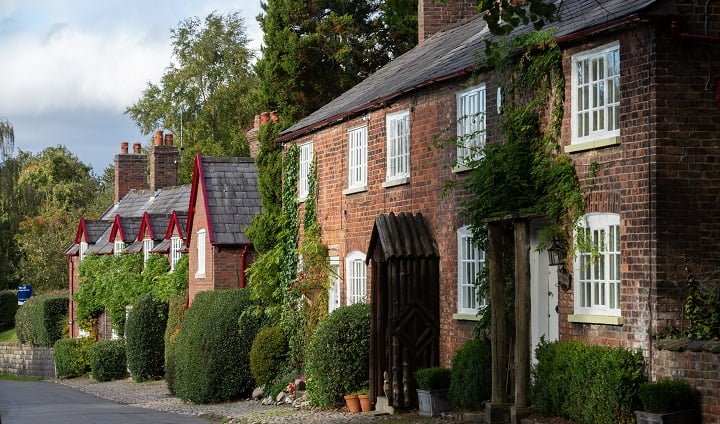Drug Rehab & Alcohol Rehab in Lincoln
Quick links for drug and alcohol rehab in Lincoln
- Drug and Alcohol Addiction in Lincoln
- How Do I Know If Need a Drug Rehab and Alcohol Rehab in Lincoln?
- Professional Intervention for Drug Rehab and Alcohol Rehab in Lincoln
- What is the Admissions Process at Drug Rehab and Alcohol Rehab in Lincoln Like?
- Dual Diagnosis at Drug Rehab and Alcohol Rehab in Lincoln
- Therapy at Drug Rehab and Alcohol Rehab in Lincoln
- Abstinence & Relapse Prevention Planning at Drug and Alcohol Rehab in Lincoln
- Private Drug and Alcohol Rehab Centres in Lincoln
- Alternatives to Private Drug Rehab and Alcohol Rehab in Lincoln
- How to Choose the Right Drug Rehab and Alcohol Rehab in Lincoln
Alcohol and drug addiction is a serious problem in Lincoln. There is a particularly high incidence of alcohol, amphetamines and ecstasy abuse.
A report in 2003 even suggested that Lincoln had the highest rates for abuse of stimulant-type drugs in the UK.
Addiction is far too serious of a problem to ignore.
It destroys lives and damages communities and society as a whole.
The good news is that there is help available for beating drug and alcohol addiction to those who are willing to make use of it.
Types of addiction treated at drug and alcohol rehab services include alcohol addiction and binge drinking, buprenorphine addiction, cannabis use disorder, cocaine dependence, ketamine addiction, opioid use disorder and even behavioural addictions and gambling addiction.
Begin your journey towards sobriety at a drug and alcohol rehab in Lincoln by calling our team today on 0800 088 66 86
Drug and Alcohol Addiction in Lincoln and near Lincoln

Alcohol support group talking together at a drug rehab and alcohol rehab clinic in Lincoln
The UK is no stranger to problems related to drug and alcohol addiction.
Research conducted by the Health Survey for England estimates that around 54% of adults consume alcohol each week. Also, 13% of men and 8% of women drink alcohol up to five times per week.
Lincoln is not exempt from the UK’s problems regarding drug and alcohol addiction. The following crime statistics indicate just how severe the need for effective drug and alcohol rehab in Lincoln is:
| Drug and Alcohol Crime Statistics in Lincoln (2022 – 2023) | Value |
|---|---|
| Annual Crime Rate | 2.1 crimes per 1000 workday people |
| Crime Rate in Lincoln Compared to National | 76% |
| Drug and Alcohol Crime Percentage | 2.1% |
| Total Drug and Alcohol Crimes in Lincoln | 600 |
| Year-over-Year Increase in Drug and Alcohol Crimes in Lincoln | 20.2% |
| Drug and Alcohol Crime Rate in Lincoln | 2.1 crimes per 1,000 working people per annum |
| Rank in England and Wales’ Postcode Areas | 33 out of 99 postcode areas |
According to the Lincolnshire Alcohol and Drug Strategy, alcohol misuse burdens the NHS with costs of over £3.5 billion per year.
In Lincolnshire specifically, alcohol misuse results in costs of around £41 million on healthcare each year. While those who are addicted will benefit the most from overcoming addiction, the community’s economy and overall wellness will also benefit significantly,
Don’t wait until it’s too late to get help – get the support you need from a drug and alcohol rehab in Lincoln by calling us on 0800 088 66 86
Drug and Alcohol Rehab in Lincoln – Addiction is a Disease

Black and white photo of a group of alcohol support patients hugging at a drug and alcohol rehab in Lincoln
To help others overcome addiction through drug and alcohol rehab, we need to eliminate the stigma surrounding it.
We can do this by educating those who do not fully understand addiction and are influenced by common misconceptions about drug and alcohol addiction.
The disease model of addiction establishes addiction as a disease of chronic relapsing and brain reward.
If a subject has an addiction, their brain reward pathways have been altered to yearn for and become dependent on a particularly toxic substance.
As a result, subjects will suffer profoundly if they do not consistently consume this addictive substance. However, the more they consume, the higher their tolerance becomes, and the more severe their withdrawal symptoms are.
This means that they will need to continually increase their consumption of drugs or alcohol to match their elevated tolerance levels.
Subjects will then be in a dangerous situation where they find themselves consuming high amounts of drugs or alcohol in order to function.
You can read more about the disease of addiction here.
Overcome the disease of addiction with the help of a drug and alcohol rehab clinic in Lincoln by calling us today on 0800 088 66 86
Drug Rehab and Alcohol Rehab in Lincoln and near Lincoln – Why Do People Turn to Drugs and Alcohol?
Factors that influence people to turn to substances include trauma, pressure from friends, stress, being exposed to drugs at a young age, and how your parents raised you.
A study by professor of Genetics & Genomic Sciences Alison Goate found increased usage of drugs and alcohol in people with a CHRM2 gene (muscarinic cholinergic receptor 2).
Treating Physical and Psychological Dependence at Drug Rehab and Alcohol Rehab in Lincoln and near Lincoln

Woman meditating on a bed at a drug and alcohol rehab in Lincoln
One of the most profound differences is whether subjects are physically or psychologically dependent on a specific substance.
Those who are physically dependent will need to consume these substances to ensure that their body is able to function.
These subjects may experience symptoms including but not limited to seizures, fatigue, lethargy, diarrhoea, fever, and more.
On the other hand, there are drug and alcohol rehab patients who are psychologically dependent on drugs or alcohol. They will need to consume these addictive substances to feel mentally stable.
If not, they will experience symptoms such as anxiety, depression, paranoia and more.
Whether subjects are suffering from physical or psychological dependencies will affect their recovery programme at drug and alcohol rehab.
Different forms of dependencies will require different methods to overcome addiction at their drug and alcohol rehab in Lincoln.
Whatever kind of addiction you suffer from, get the help you need from a drug and alcohol rehab in Lincoln by calling our team today on 0800 088 66 86
How Do I Know If Need Drug and Alcohol Rehab in Lincoln or near Lincoln?

Therapist speaking with an alcohol support group at a drug and alcohol rehab in Lincoln
There are many ways a subject can identify whether they are addicted or not and discover if drug and alcohol rehab treatment is needed.
If subjects experience some of the common symptoms associated with addiction like impaired control and withdrawal symptoms, it is likely that they have an addiction or dependency.
In the test are 10 questions related to addiction intake, dependence, and its consequences. The subjects will carefully answer these questions without manipulating their answers, as it is imperative that they are honest to assess results that are reliable.
Should subjects get the results and score higher than 13 points, it means that they are suffering from alcohol addiction.
However, scores that are lower should be addressed, as scores above 8 require the subject to reconsider and manage their consumption.
Alternatively, subjects can utilise the DSM-IV-TR diagnostic criteria to decide whether or not they have an addiction to drugs or alcohol. It is an effective framework that helps subjects understand the severity of their addiction.
It is important to remember that addiction is a spectrum, and not everyone will suffer in the same way or at the same levels of intensity of addiction.
Additionally, people’s perspectives will vary and their response will vary from the next person who is battling an addiction.
The DSM-IV TR diagnostic criteria identify substance abuse with things such as legal problems, social problems, and the inability to take responsibility for themselves stemming from a subject’s drug or alcohol problems.
On the other hand, the same criteria define drug or alcohol dependence as having a strong compulsion and tolerance for certain substances, along with withdrawal symptoms, lack of personal interests and much more.
While taking these tests will help them realise that what they are suffering from requires assistance from a professional drug and alcohol rehab, it is important to also seek a diagnosis from a medical professional.
Still not sure whether or not you’re suffering from addiction? Talk it over with our team today on 0800 088 66 86
Professional Intervention for Drug and Alcohol Rehab in Lincoln

Black and white photo of chairs set up for a group therapy program at a drug and alcohol rehab in Lincoln
Sometimes, a subject’s concern regarding drug or alcohol addiction isn’t for themselves, but for a loved one.
It can be emotionally traumatic and distressing to witness a loved one battle and face the consequences of addiction, particularly if they refuse to seek help from a drug and alcohol rehab.
In this instance, an intervention is needed.
Professional intervention can be very effective in guiding a loved one into the treatment that they need, especially if they are reluctant to seek help.
Understanding drug or alcohol addiction isn’t everyone’s forte, and the support of professionals can be vital.
A prominent example of professional intervention is the CRAFT approach, or Community Reinforcement And Family Training.
It consists of practising positive reinforcement by encouraging their loved one whenever they demonstrate control and self-discipline.
The family also takes less responsibility with this approach, as it allows the one who is dealing with drug or alcohol addiction to learn which habits are positively or negatively reinforced by the family, slowly guiding them towards seeking drug and alcohol rehab of their own accord.
Make sure that you intervention helps your loved one get the support they need from alcohol or drug addiction treatment services in Lincoln – call us today on 0800 088 66 86
What is the Admissions Process at Drug and Alcohol Rehab in Lincoln Like?

Therapist leading an alcohol support group at a drug rehab and alcohol rehab in Lincoln
When you call us, you will come into contact with a member of Rehab Recovery’s trained drug and alcohol rehab admissions team.
A consultation will take place where the subject can discuss their details and requirements for entering a drug and alcohol rehab.
The consultation is done with complete discretion and in a casual manner. It is an opportunity for the subject to express their preferences or requirements when it comes to selecting a suitable drug and alcohol rehab in Lincoln.
Begin the admissions process for a drug and alcohol rehab in Lincoln by calling our expert team today on 0800 088 66 86
Detoxing at Drug Rehab and Alcohol Rehab in Lincoln or near Lincoln

Group therapy for alcohol addiction at a drug and alcohol rehab centre in Lincoln
A medicated detox is a fundamental process of many addiction recovery plans Because of this, they must be planned carefully to ensure that the drug and alcohol rehab patient has a high chance of successful recovery.
In a drug and alcohol rehab in Lincoln, patients will undergo a medicated detox. Here, they will have 24/7 care in a comfortable and medically regulated environment where they will allow the substance to withdraw from their body safely.
During the medicated detox at a drug and alcohol rehab in Lincoln, patients will be given prescription drugs to assist them.
This will help them overcome potential withdrawal symptoms that occur and make the process much easier, preparing them to fully engage with the later stages of drug and alcohol rehab in Lincoln or elsewhere.
Medicated Alcohol Detox at Drug Rehab and Alcohol Rehab in Lincoln
The medicated alcohol detox (medically-assisted detox using Chlordiazepoxide – brand name Librium) process will vary slightly according to the patients and their history of addiction. Patients who are recovering from alcoholism will spend around 7 to 10 days allowing alcoholic substances to withdraw from their bodies.
Alcohol can present both physical and psychological symptoms for patients.
This can create an array of severe symptoms which deter patients from abstaining. Because of this, patients will need to undergo detox at a medically supported facility with help from professionals.
Because alcohol withdrawal symptoms can be so severe, prescription drugs may be used to minimise its impact. These include but aren’t limited to Benzodiazepines, Naltrexone, and much more. Wernicke encephalopathy can also occur from alcohol abuse.
One prominent prescription drug is Librium. This medication is implemented to act as a sedative and reduce anxiety and the effects of delirium tremens and alcohol withdrawal syndrome. By regulating nervous activity, patients can feel more relaxed and willing to allow alcohol to withdraw from their bodies.
Medicated Drug Detox at Drug Rehab and Alcohol Rehab in Lincoln
Other substances will vary in the kinds of symptoms that they present. Heroin, for example, is a physically addictive drug and will present severe physical withdrawal symptoms which could prove to be fatal.
Cocaine and cannabis, on the other hand, are psychologically addictive drugs.
While they will not present the physical symptoms like that of a heroin or alcohol addiction, they can still be extremely discomforting.
The medicated detox stage for patients recovering from cocaine can be intense but relatively short, lasting around 7 to 10 days.
Heroin detox, on the other hand, might require patients to spend around two weeks allowing substances to withdraw safely.
Ensure that your detox is safe and effective with the help of a rehab clinic in Lincolnshire by calling us today on 0800 088 66 86
Dual Diagnosis at Drug and Alcohol Rehab in Lincoln and near Lincoln

Photo of a garden at a residential drug rehab and alcohol rehab in Lincoln
If a patient receives a dual diagnosis because they have co-occurring conditions, a suitable drug and alcohol rehab in Lincoln will be selected to address these concerns. It is imperative that they enter a drug and alcohol rehab in Lincoln which can accommodate their needs.
A psychiatric assessment will take place by a trained psychiatrist who will assess if you need psychiatric treatment.
When a patient is undergoing recovery, a lot of emphasis is placed on improving the spiritual, mental, and physical wellness of the patient. While overcoming addiction is the main priority, the patient needs to be healthy (mentally and physically) to recover.
Therefore, during the pre-admission assessment, it is essential that the patient discloses any other condition they have along with their addiction.
These conditions can vary from mental health concerns (as classified by the DSM-5) like depression, anxiety, bipolar disorder, schizophrenia, Post-Traumatic Stress Disorder (PTSD), eating disorders, Borderline Personality Disorder (BPD) and Obsessive-Compulsive Disorder (OCD), to physical conditions like pregnancy, diabetes and much more.
It was estimated by Gov.uk that almost 60% of patients who enter drug and alcohol rehab are in need of additional treatment for another mental health condition.
At Rehab Recovery, we can ensure that your requirements will be met whilst at drug and alcohol rehab in Lincoln or near Lincoln.
Many organisations across the UK offer free mental health support, whether you are also suffering from addiction or not.
Some of these include Mind UK, Young Minds, Rethink Mental Illness, Samaritans and Papyrus.
Discover how a drug and alcohol rehab centre in Lincoln will work to support your physical and mental health by calling us today on 0800 088 66 86
Cocaine Treatment at Drug Rehab and Alcohol Rehab in Lincoln and near Lincoln

Woman meditating next to a lake at a drug and alcohol rehab in Lincoln
Cocaine is a highly addictive stimulant that causes short bursts of euphoria and cause the user to feel talkative, alert, and energetic.
Cocaine stops dopamine – known as the ‘feel-good’ hormone – from being reabsorbed into the brain, meaning that it lingers on the brain making the person feel euphoric.
It is this feeling that users chase when they continue to take cocaine.
While cocaine and crack cocaine are both highly addictive, they does not cause physical addiction. This means that you can quit cold turkey without any physical withdrawal symptoms, so cocaine detox is not necessary.
If you are seeking rehab for cocaine addiction, you may only need to stay in rehab for 7 – 10 days until the cravings for the substance disappear.
Overcome your cocaine addiction with the help of a drug rehab in Lincoln – call our team today on 0800 088 66 86
Heroin Treatment at Drug Rehab and Alcohol Rehab in Lincoln and near Lincoln

Couple sat in a field after alcohol addiction treatment at a drug rehab and alcohol rehab in Lincoln
Heroin is another highly addictive and very dangerous drug that needs the support of a professional drug and alcohol rehab to treat.
Once heroin addiction takes hold, it can be incredibly difficult to get clean again with severe heroin withdrawal symptoms.
Heroin causes physical dependence, meaning that you will need to undergo a medically assisted heroin detox before attending therapy and addiction counselling for the emotional toll the addiction has taken.
If you attend rehab for heroin addiction, it is recommended that you spend 28 days overcoming the addiction.
This gives you enough time to detox the substance from your system and spend time in therapy tackling the psychological addiction.
Overcome your heroin addiction with the help of a drug rehab in Lincoln – call our team today on 0800 088 66 86
Cannabis Treatment at Drug Rehab and Alcohol Rehab in Lincoln and near Lincoln

Black and white photo of people hugging during a group meeting at a drug rehab and alcohol rehab in Lincoln
Cannabis can cause paranoia, anxiety, and persistent coughing.
Cannabis does not cause a physical addiction, so a cannabis detox is not required when attending drug and alcohol rehab for cannabis addiction.
Some withdrawal symptoms of cannabis addiction are anxiety and loss of concentration.
Because a cannabis addiction is psychological only, you may only need 7 – 10 days in a drug and alcohol rehab facility to overcome it.
Overcome your cannabis addiction with the help of a rehab in Lincoln – call our team today on 0800 088 66 86
Therapy at a Drug and Alcohol Rehab in Lincoln and near Lincoln

People smiling during alcohol addiction therapy at a drug and alcohol rehab in Lincoln
At a drug and alcohol rehab in Lincoln, patients will undergo various forms of therapy and addiction counselling to assist them in overcoming addiction. Therapy aims to improve the quality of life for patients when they leave their drug and alcohol rehab.
Therapy comes in many forms, such as holistic therapy, communicative therapy, and relapse prevention.
All have very different objectives yet achieve the same result of optimising the wellness of patients. There is no shortage of options for patients when it comes to therapy at drug and alcohol rehab.
Communicative Therapy at Drug Rehab and Alcohol Rehab in Lincoln and near Lincoln
Communicative therapy includes the likes of support sessions, Cognitive Behavioural Therapy, family therapy, and much more. They will help the patient widen their perspective, reinforcing their goals and sharing their problems as a form of catharsis.
Many drug and alcohol rehab treatments come in the form of both individual therapy and group therapy.
Support sessions are a staple in any recovery programme, whether the patient is still in drug and alcohol rehab or during their aftercare programme. They are effective in allowing the patient to influence and to be influenced by others facing the same struggles.
By providing them with the platform to share, they can share their experience with peers.
Family therapy is another form of support that has proven to be extremely effective in drug and alcohol rehab. It is a personal form of therapy and allows the family to communicate openly and constructively about addiction.
This will break down any stigmas and confusion surrounding addiction, providing another source of support for the patient after they leave drug and alcohol rehab in Lincoln.
The aim of Cognitive Behavioural Therapy, or CBT, is to reconfigure any cognitive distortions or negative and self-destructive behaviour patterns that the patients may have regarding addiction. Dialectical Behavioural Therapy follows a similar structure but emphasises emotional management, and both methods provide an effective psychological basis for addiction recovery at drug and alcohol rehab.
Motivational Interviewing is a form of therapy that helps patients manifest their personal goals into reality.
By speaking their objectives into existence, it reinforces their intrinsic motivation, helping them consolidate their goals whilst at drug and alcohol rehab.
This often comes alongside Motivational Enhancement Therapy to ensure the patient maintains a good level of drive throughout their time at drug and alcohol rehab.
Holistic Therapy at Drug Rehab and Alcohol Rehab in Lincoln and near Lincoln
Holistic therapy is diverse because it can be facilitated in so many different ways. The objective is to help improve the overall happiness of the patient, as it is effective in decreasing levels of stress and anxiety whilst providing alternative ways of communicating and engaging with the complicated feelings that often come hand-in-hand with drug and alcohol rehab treatment.
This kind of drug and alcohol rehab therapy can come in the form of activities such as yoga, practising mindfulness or meditation, creative exercises like art therapy or music therapy, and much more.
Other forms of therapy used at drug and alcohol rehab in Lincoln can include Acceptance and Commitment Therapy (ACT), acupuncture, brief intervention, codependency treatment, contingency management, drama therapy, equine therapy, Eye Movement Desensitization and Reprocessing (EMDR), Rational Emotive Behaviour Therapy (REBT) and other forms of talking therapies.
Experience any and all of these superb therapies at a drug rehab centre in Lincoln by giving our team a call today on 0800 088 66 86
Abstinence & Relapse Prevention Planning at Drug and Alcohol Rehab in Lincoln and near Lincoln

Two people holding a sapling at a drug rehab and alcohol rehab in Lincoln
Many experts have agreed that abstinence is far more effective than harm reduction or moderation management – as a result, this recovery goal is what most drug and alcohol rehab programmes focus on.
If a drug and alcohol rehab patient is practising moderation, then it means that they are still frequently exposed to addictive substances, running the serious risk of a relapse resulting in continued heavy consumption. To overcome addiction, patients need to master abstinence.
Addiction is a complex disease and recovery is not something that should be attempted alone. To overcome addiction, a drug and alcohol rehab patient must eliminate drugs and alcohol completely from their lifestyle.
Only then can patients learn about relapse prevention planning.
While patients might feel rejuvenated after their medicated detox and therapies experienced during their time at a drug and alcohol rehab, it is important to sustain this with effective relapse prevention planning.
It is important to realise that after the patient has left drug and alcohol rehab there is always a possibility of a relapse.
With this in mind, patients can reinforce their resilience when it comes to battling addiction through relapse prevention planning.
An effective relapse prevention planning strategy is included in most recovery programmes at drug and alcohol rehab. Cognitive Behavioural Therapy (CBT), Cenaps Relapse Prevention and 12 Step Facilitation Therapy are examples of therapy that assist the patient in relapse prevention.
While these forms of therapy vary slightly in their methods, they each have the same objective. Cenaps Relapse Prevention provides patients with the necessary steps to overcome addiction and to remain abstinent by overcoming relapse triggers.
12 Step Facilitation is another example of a therapy that is used to assist patients in overcoming relapse triggers.
Local sober living houses may also be offered to help maintain an environment entirely free from addiction triggers for a while after leaving drug and alcohol rehab in Lincoln, making the transition back to life outside of rehab easier.
Make sure that you beat addiction once and for all at a rehab in Lincoln – give our expert team a call today on 0800 088 66 86
Private Drug and Alcohol Rehab Centres in Lincoln and near Lincoln

Addiction is not considered a ‘choice’ or ‘moral failing’ on behalf of the addiction sufferer – so the focus of drug and alcohol rehab is always on returning agency to the patient.
When subjects make the decision that they want to turn their life around, they will have to choose whether to opt for private drug and alcohol rehab or free rehab services like those offered by the NHS.
Both pose benefits and drawbacks that are important for each prospective drug and alcohol rehab patient to consider.
If a subject is seriously concerned about their addiction or dependence or they have struggled to recover in the past, they should seriously consider going to a private drug and alcohol rehab in Lincoln.
At a private drug and alcohol rehab in Lincoln, patients will receive instant admission, 24/7 care from medical professionals, medication, and they will undergo a personalised recovery programme.
Personalised programmes are imperative for recovery as they address each unique problem and facet of addiction. When it comes to addiction, one size doesn’t fit all.
Each case is unique and needs to be treated as such.
The only concern with a private drug and alcohol rehab facility is its cost. For a 28-day stay at a private drug and alcohol rehab in Lincoln, patients could expect to pay around £6,000. This includes accommodation, a personalised recovery programme, instant admission, and more.
While it may seem expensive, it comes with an array of tools and support which combine to create an effective recovery programme.
It is vital that people seek the highest quality of support, and the most optimal way to recover would be at a private drug and alcohol rehab facility.
Drug and alcohol rehab centres and other addiction treatment organisations in the UK are maintained by guidelines from the National Institute for Health and Care Excellence, NHS Foundation Trust and the American Society of Addiction Medicine. so you are in safe hands with person-centred care.
To enjoy all the benefits of a private rehab in Lincoln, give our team a call today on 0800 088 66 86
Alternatives to Private Drug and Alcohol Rehab in Lincoln and near Lincoln

People walking through a forest during outdoor therapy at a drug rehab and alcohol rehab in Lincoln
Professionally supported drug and alcohol rehab is one of the best ways to recover from addiction, but it isn’t for everyone.
Thankfully, there are other alternatives to traditional drug and alcohol rehab facilities in Lincoln and near Lincoln.
Patients can undergo the medicated detox and treatment during outpatient drug and alcohol rehab treatment. This is desirable for many of those who have responsibilities at home to take care of.
If an outpatient undergoes a home detox, they are offered convenience as a medical professional will travel to their home to accommodate their needs and ensure that the process is going well.
However, there are many people who should not consider a home detox. This includes but isn’t limited to:
- Those who have a history of failing to recover
- Those who have co-occurring disorders or mental health issues
- Those who are pregnant
- Those who may become violent, or more.
This is because those who are more susceptible to the effects of addiction need to be carefully monitored by a team of experienced medical professionals.
Here, they can recover optimally in a safe and comfortable environment away from relapse triggers.
Free and NHS-run drug and alcohol rehab services in Lincoln include:
1. CAMHS Lincoln
Address: Sycamore Centre, Beacon Lane, Grantham, NG31 9DF
Telephone: 0303 123 4000
2. We Are With You – Drug & Alcohol Rehab Support
Address: 26-30 Newland, Lincoln, LN1 1XG
Telephone: 0800 304 7021
Website: https://www.wearewithyou.org.uk/
3. Connect to Support – Lincolnshire
Telephone: 0300 303 8789
Website: https://lincolnshire.connecttosupport.org/
Another option subjects have is to join a fellowship group. There are many fellowship groups that would provide useful tools to help subjects overcome addiction, such as Alcoholics Anonymous (AA), Narcotics Anonymous (NA), Cocaine Anonymous (CA), SMART Recovery, Al-Anon, Alateen and more. Groups like Alcoholics Anonymous believe in a higher power that can help you stay sober.
Organisations such as Change Grow Live help you with needle exchange services in order to reduce the transmission of hepatitis.
Each one of these examples is a nonprofit organisation that is also apolitical, which means they have the subject’s best interests at heart. Here, drug and alcohol rehab patients can expand and reinforce their network of support to increase the likelihood of sustained recovery.
AA and NA offer self-supporting networks and a 12-step guide to living a healthier lifestyle, either before drug and alcohol rehab or after.
This new lifestyle and what it practises is effective in preventing relapses from occurring due to the subjects having obtained positive and healthy habits.
SMART, or Self-Management And Recovery Training, utilises transformative methods to assist the subjects in overcoming their addiction.
By encouraging self-empowerment as well as intrinsic motivation to recover, subjects develop and sustain positive lifestyle changes.
Whatever help you need to beat addiction -whether from a conventional alcohol and drug rehab in Lincoln or one of these excellent alternatives- let our team help by calling us today on 0800 088 66 86
How to Choose a Drug and Alcohol Rehab in Lincoln or near Lincoln

It is incredibly important that patients enter a drug and alcohol rehab in Lincoln which makes them feel comfortable.
Subjects should not opt for the first drug and alcohol rehab facility they hear of, and should instead be open-minded to see what is best.
When searching for drug and alcohol rehab, there are some things that subjects should consider. These factors range from how experienced, affordable, reputable, and accommodating these drug and alcohol rehab facilities are.
Drug and alcohol rehab should not only be affordable for the patient but it should have experience in the industry.
With positive reviews, high success rates, and around 20 years of experience, patients can expect rehab to facilitate their recovery optimally.
If a drug and alcohol rehab is new or lacks a reputation, then it may be too inexperienced or of low quality which may not be optimal for your recovery.
When it comes to recovering from addiction, you need to prioritise yourself and seek the drug and alcohol rehab treatment that you need.
Make sure that you end up at the perfect alcohol or drug rehab clinic in Lincoln for your needs by calling us today on 0800 088 66 86
How We Will Help You Find the Best Drug and Alcohol Rehab in Lincoln or near Lincoln

People stood with their hands raised outside of a drug and alcohol rehab in Lincoln
Choosing a drug or alcohol rehab blindly may mean entering a program that is not ideal for your requirements.
The problem is that most people will not be aware of their options for drug and alcohol rehab treatment, and this means that they will struggle to find the most appropriate one – this is not the type of decision you want to leave to luck.
Our team is expert in regards to what rehabs have to offer – we will be able to offer you advice on your best options right around the UK.
These days many people are deciding to go beyond Lincoln for help from a drug and alcohol rehab, and this may be something that you want to consider as well.
If you contact us now we will help you find something appropriate, and once you have reached your decision we can then make the arrangements for you.
Every rehab in England and Wales that we work with is vetted by the Care Quality Commission.
Get help for addiction anywhere in Lincolnshire, including in Grimsby, Scunthorpe, Grantham, Boston, Cleethorpes, Spalding, Skegness, Gainsborough, Stamford, Sleaford, Louth, North Hykeham, Bourne, Market Deeping, Mablethorpe, Barton-upon-Umber, Immingham, Holbeach, Horncastle, Brigg, Washingborough, Waltham and many others.
Get the help you need to beat addiction in Lincoln by calling our team today on 0800 088 66 86


